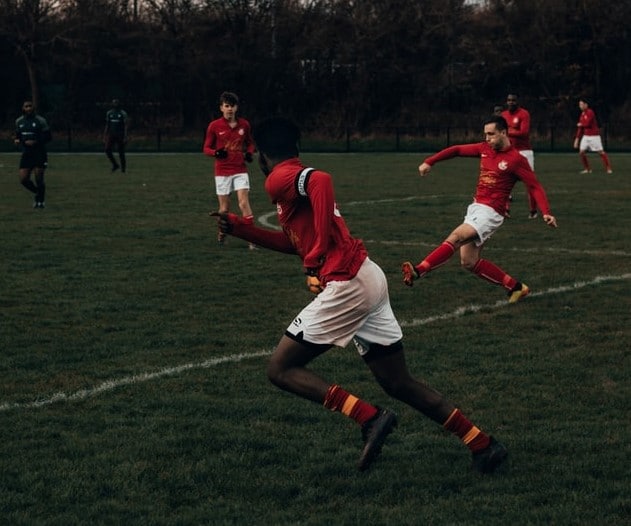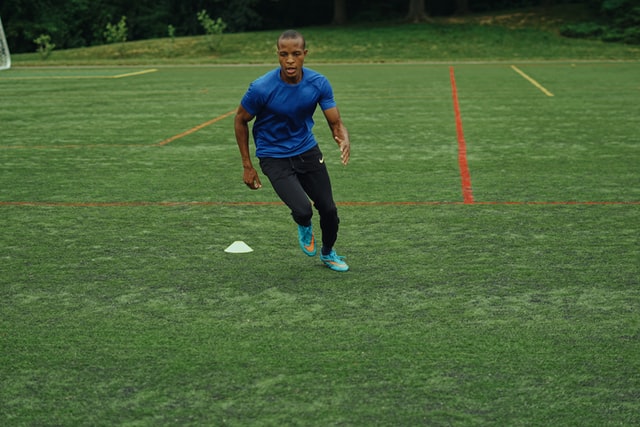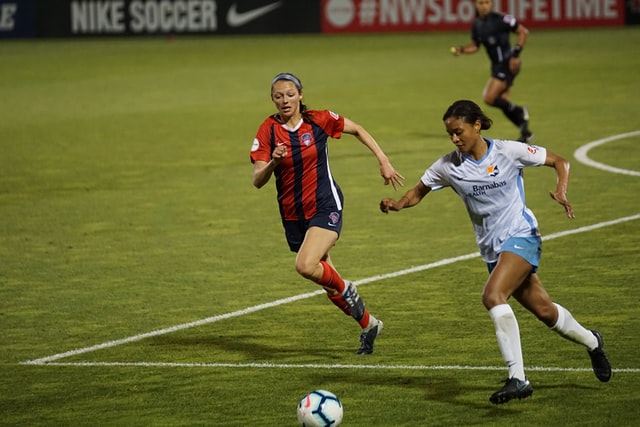If you are a soccer player yourself, or you’re just a person who’s interested in learning more about soccer, then one of the main questions that can come to your head is whether soccer players run everyday or not.
In order to answer the question, you’ll have to look at what the professional soccer players do, and their training routines, so here’s your quick answer.
Do professional soccer players run everyday?
Professional soccer players do not run everyday. They do run during the majority of the week days, but not everyday. Soccer players are usually given rest days where they do not attempt any sort of training including running sessions.
If you check the training schedules of most of the top soccer clubs around the world, you’ll find that players who participate in a match during a certain week will get at least a day off during that week.
And usually, players who get days off will not do any training in order to give their bodies and their muscles a chance to relax and restore their energy.
So in simple words, professional soccer players do not run everyday.
In addition to the weekly days off, soccer players do get a few consecutive days off almost every year and they usually use these days to spend some quality time with their loved ones and to enjoy the money that they have earned during their hard working days.
After all, soccer players are employees and they are supposed to have holidays breaks like any other employee in any other discipline.
During these consecutive break days, soccer players usually don’t run as a form of exercise. Some of them might do some practice to keep themselves in the mood of soccer and to maintain their training consistency, but many others decide to use these free days to completely relax their bodies.
So now you know that soccer players do not run everyday, but if that’s the case, then how often do they run?
How often should a soccer player run?
Professional soccer players are required to attend a lot of training sessions every week. They do training sessions during most of the week days, and almost all of these training sessions will include running.
So in other words, most professional soccer players run at least 5 days a week. These days will include the training days and the match days.

You can easily tell why running is essential during almost every training session. Soccer players spend the whole 90 minutes of the soccer game running at different speeds on the field.
But still, this does not mean that soccer players must run every single day.
If you are a soccer player, then you should always consider taking days off. During these days, you shouldn’t be running or doing any heavy exercise.
According to this Healthline article, rest days are very important for exercise. In fact, they are part of your exercise.
The article states that rest days allow for muscle recovery, prevents muscle fatigue, reduces injury risks, and much more.
In other words, soccer players usually do not run everyday not because they’re lazy, but because they are required to have rest days in order to maintain consistency and avoid injuries that can put them out of service for months.
If you are a beginner soccer player, then start with running about 3 days a week but make sure not to exceed 5 just to let your body adapt to your new training schedule.
If you’re an advanced soccer player however, then 5~6 days a week for running is the way to go.
Finally, if you just play soccer as a hobby, and you don’t have much time to spend on running, then twice a week might be more than enough for you.
We’ve talked a lot about running and how often soccer players should run, but we haven’t discussed how soccer players run in the first place yet, so let’s do that.
Is jogging good for soccer players?
When you hear running, usually what comes to your mind is doing long consistent runs. However, this is not what running is about during a soccer match.
jogging is not good for soccer.
If you watch soccer players during a soccer match, you’ll notice that the type of running they do is nowhere near jogging.
Soccer players sprint, jump, make instant change in their running directions, dribble, and so much more.
Most of the runs that soccer players make on the field are very high intensity runs, and these types of runs require great agility and body coordination to perform.
For this reason, doing long runs with consistent speed isn’t going to help you during a soccer match.
Instead, the types of running that you need during the soccer practice sessions are the short full speed runs with instant changes in direction at any given moment.

You also need to practice running backwards and running sideways as you’ll be doing that a lot during a soccer game.
There are many running exercises that are specifically good for soccer players, but I’ll leave these to another article.
How fast should a soccer player be?
One last question that I want to cover in this article is how fast soccer players need to be.
Obviously, the easiest answer is: “as fast as they can be”. Speed during a soccer match is very important and it gives the player an advantage over slower players.
Based on this The Sun article, some of the slowest players in the premier league have a speed of somewhere between 18 mph and 18.7 mph.
Keep in mind that the premier league is one of the best soccer leagues in the world, so you don’t really have to be as fast as the slowest player in the Premier league to be able to call yourself a soccer player.
In fact, many soccer players around the world are much slower than 18 mph, and they still perform very well with their teams.
Being a slow soccer player doesn’t mean that you’re not a good soccer player.
In soccer, some positions require you to be faster than in other positions. For example, a striker in soccer should be able to move fast in order to increase their chances of scoring goals, but a defender doesn’t always need to be super fast.
Defenders need to know where to stand and how to block or tackle the opponents that are running towards them to score a goal.
Speed is very important for defenders too, but not as much important as it is for strikers for example.
If your team is a slow in general, then check these great formations for slow soccer teams.
With that said, I’ll end my article with a quick conclusion.
Conclusion
Soccer players do not run everyday, and should not run everyday. Professional soccer players take days off during many weeks, and these off days are a great chance for the players to recover their strength and lower the chances of getting injured.
As for the type of running that soccer players do, it’s short but highly intensive sprints instead of long and consistent runs.
As a soccer player, being fast can be a privilege but it doesn’t mean that being slow can make you a bad soccer player. Some professional soccer players aren’t fast yet they are some of the top players around the world.

